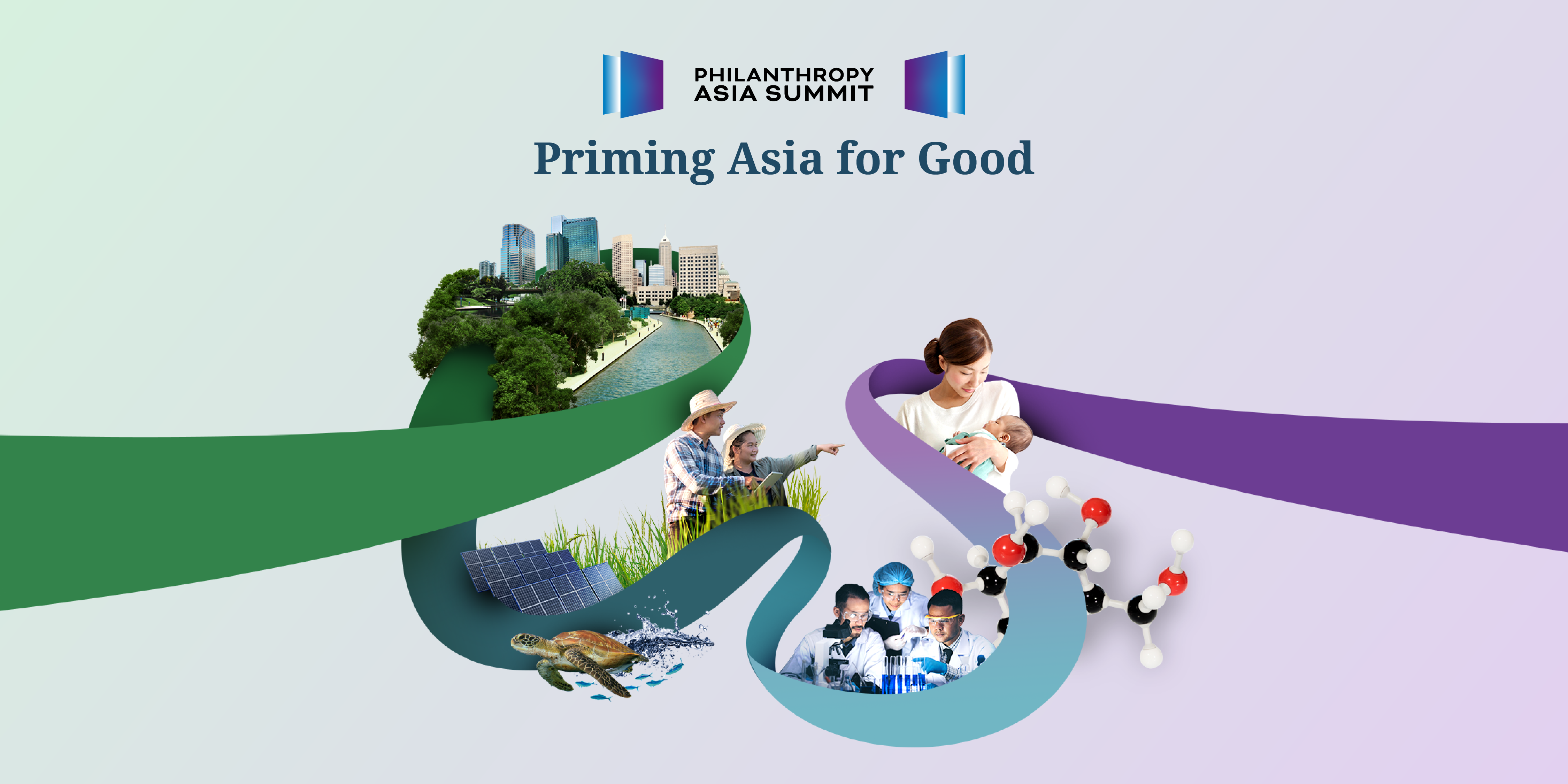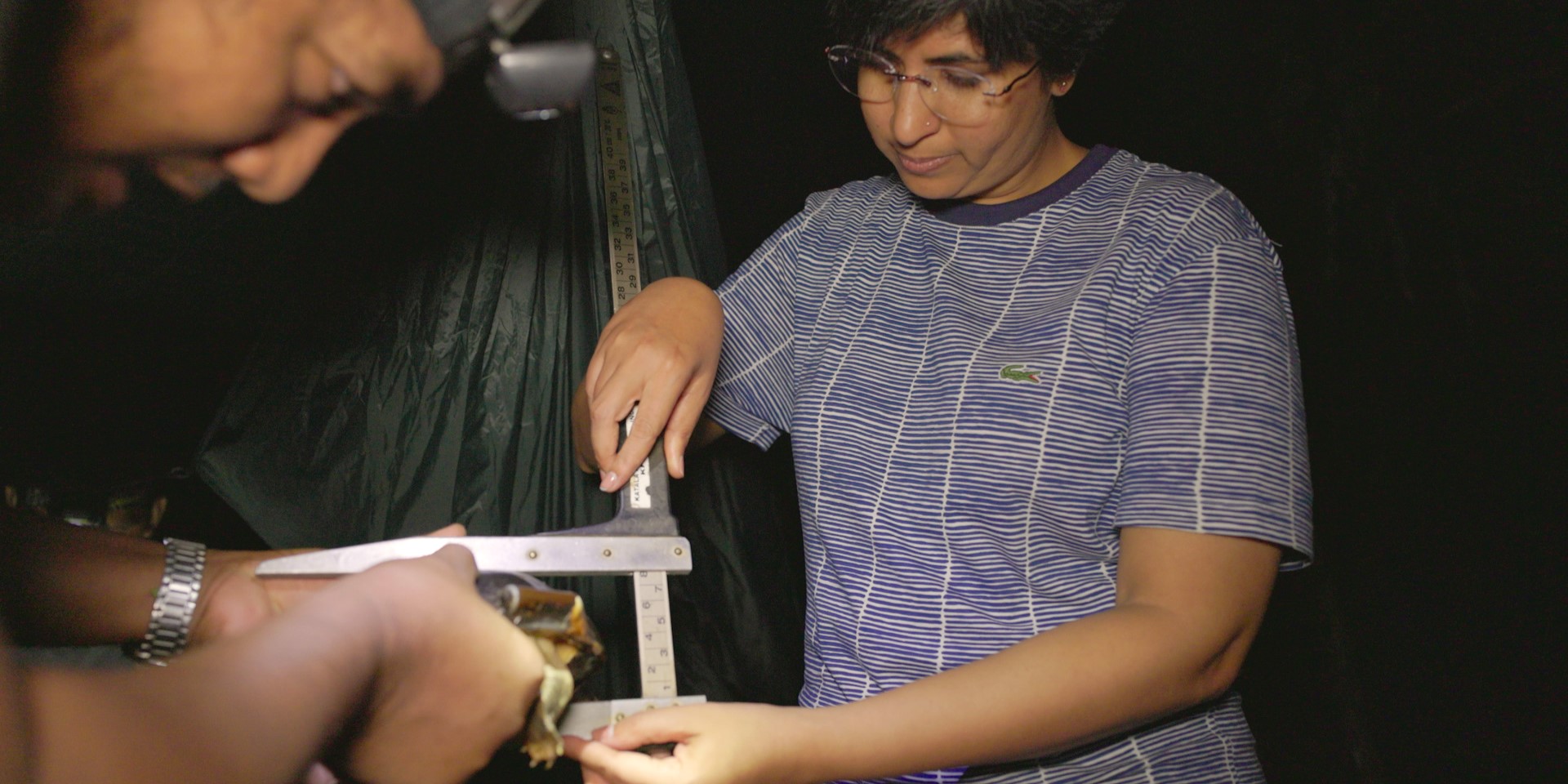Through Calls to Action (CTAs), the Philanthropy Asia Alliance (PAA) leverages philanthropic capital and tests out innovative models to drive positive climate and community change.
These CTAs are Asia-focused projects that enable the philanthropic community to act and tackle the greatest environmental and social challenges facing us. To date, PAA has curated 29 CTAs in the interconnected mandated areas of Climate & Nature, Holistic & Inclusive Education, and Global & Public Health.
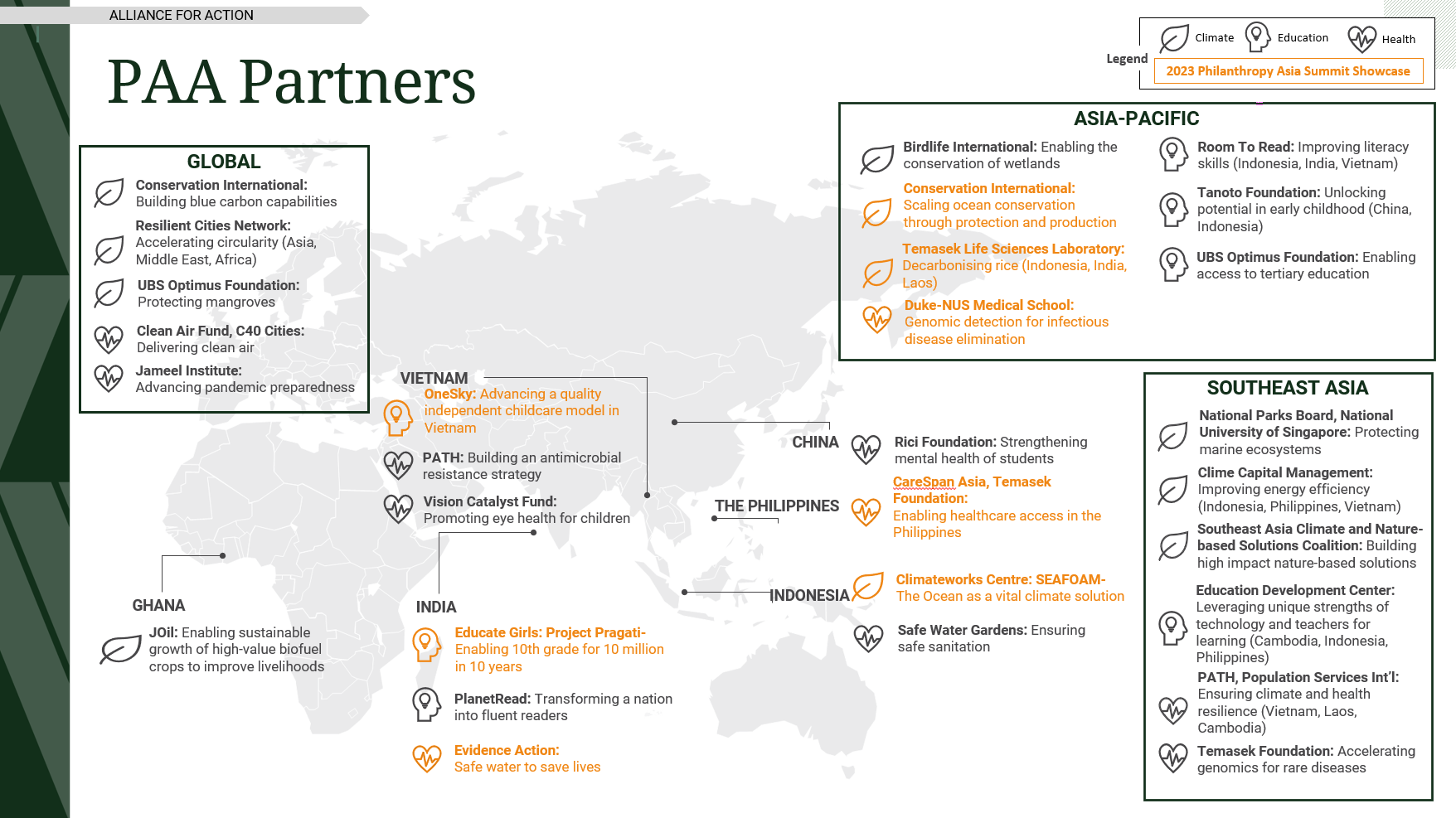
The CTAs are a key differentiating factor of the Philanthropy Asia Summit (PAS), PAA’s annual flagship platform for action.
Read on for the highlights of the showcase CTAs at PAS 2023:
Climate & Nature
SEAFOAM: The Ocean as a Vital Climate Solution – by Climateworks Centre
What if we can catalyse a scalable framework for blue carbon solutions? To limit the annual average global temperature increase to 1.5 degrees Celsius above pre-industrial levels, greenhouse gas emissions must peak by 2025. The ocean – long overlooked as a solution for climate change – holds the key to significantly reducing carbon emissions by 2050.
The SEAFOAM project pioneers the inclusion of the ocean in Indonesia's climate mitigation plans and aims to design an implementation framework that can be replicated in the region.
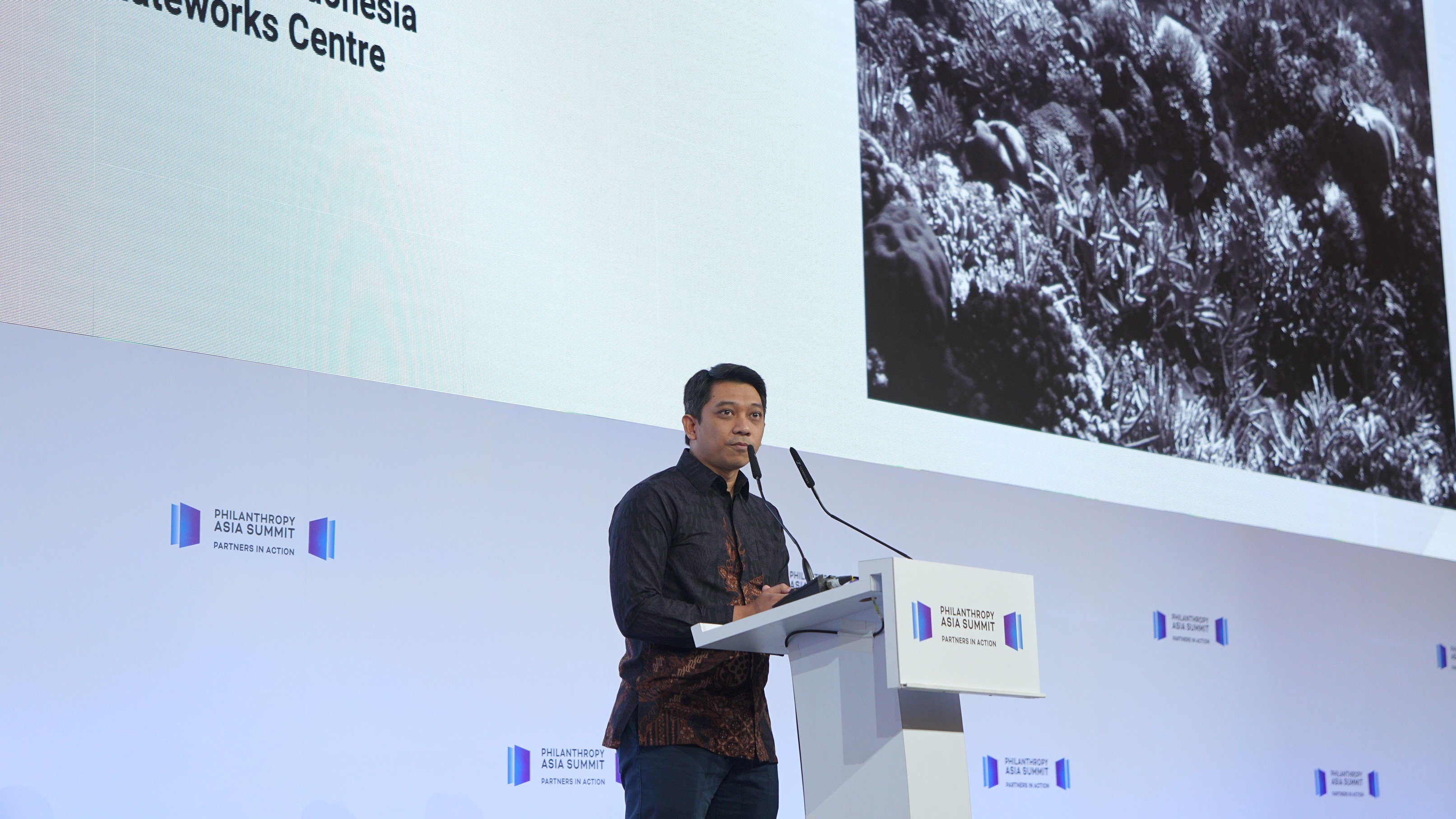
Mr. Guntur Sutiyono, Country Lead, Indonesia, Climateworks Centre, noted that in Indonesia, ocean-related sectors such as offshore renewables, maritime transport, and nature-based solutions have the potential to meet half of the country’s emissions reduction target by 2050.
Decarbonising Rice – by Temasek Life Sciences Laboratory
Rice farming is a key contributor to climate change, making up 7-12% of methane emissions in Asia. At the same time, deteriorating climate conditions are affecting rice production, making it a challenge for rice farmers to improve their crop yield.
Given this unique conundrum of rice production, the Decarbonising Rice project is piloting a novel approach of integrating climate-resilient rice variants, a customised fertigation solution, and suitable irritation methods. This seeks to simultaneously reduce methane emissions by 20%, improve water management, and improve the livelihoods of farmers.
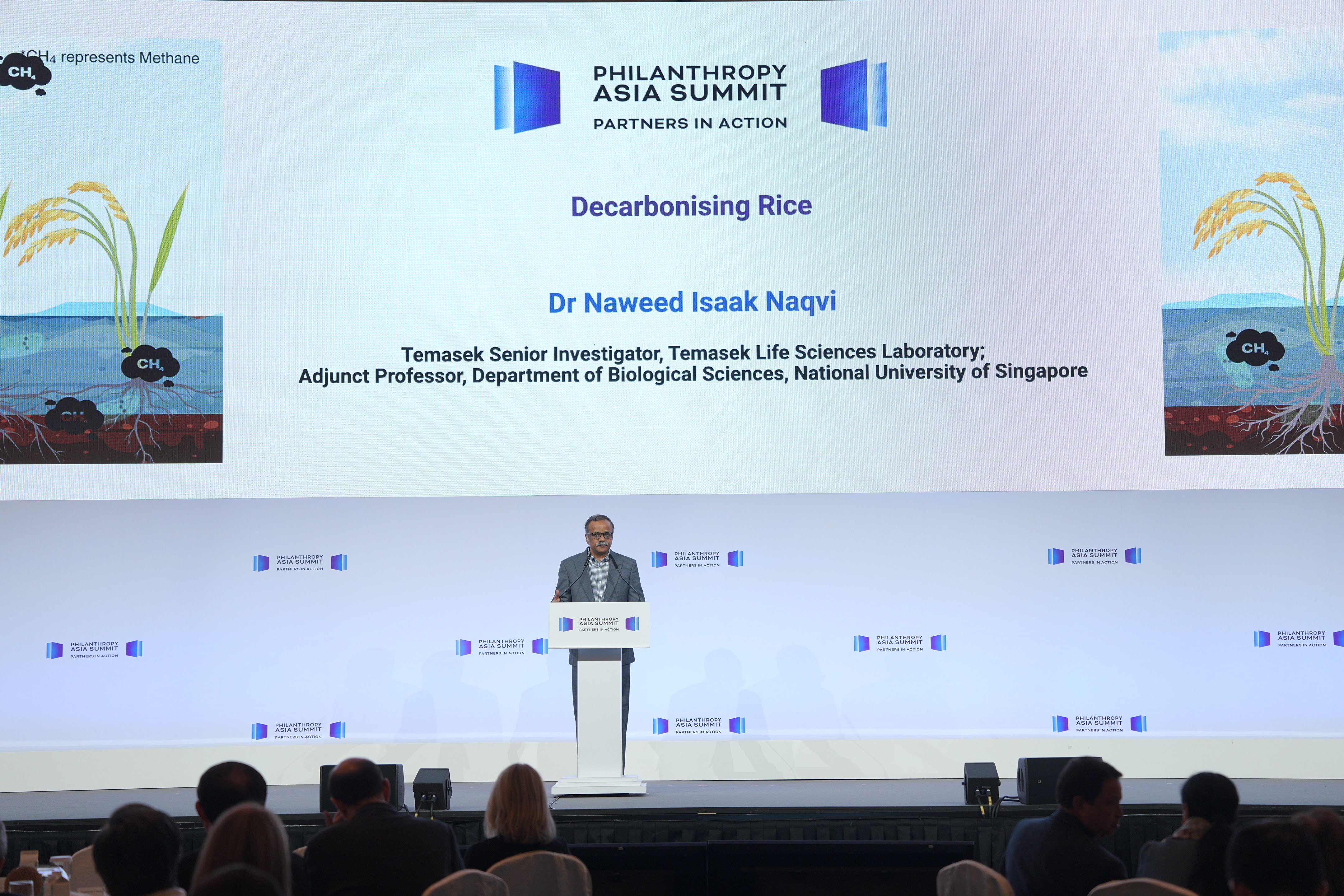
Dr. Naweed Isaak Naqvi, Temasek Senior Investigator, Temasek Life Sciences Laboratory, said the first phase of the trial has been successful – methane emissions were halved while rice production significantly improved. Moving forward, the project is looking to implement more trials in plots in India, Indonesia, and Laos.
Scaling Ocean Conservation through Protection and Production – by Conservation International
An estimated 8% of the global population depends at least partially on the ocean. In developing countries, overfishing is linked to food insecurity and affects the needs and livelihoods of vulnerable communities.
To protect critical marine habitats and livelihoods, an approach focusing on both protection and production is required – implementing marine protection alongside improved fisheries management practices. For instance, Conversation International’s flagship initiatives in Indonesia (Blue Halo S Initiative) and Fiji (the Lau Seascape Initiative) aim to unite the government, academics, and non-profits to co-create policies and a replicable framework for sustainable "blue solutions" across Southeast Asia.
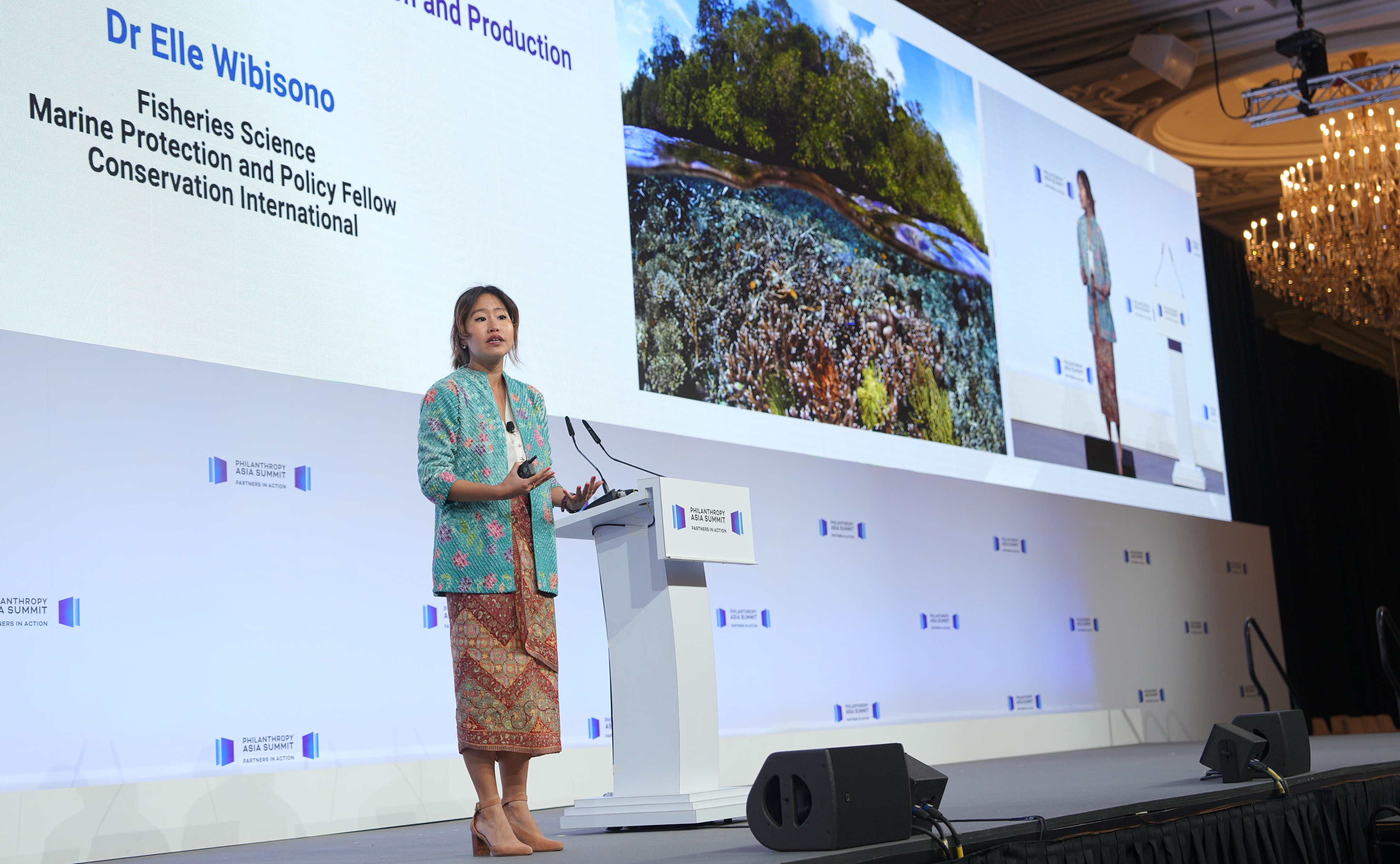
Dr. Elle Wibisono, Fisheries Science, Marine Protection and Policy Fellow, Conservation International, said it is crucial to develop and improve resilient and sustainable fisheries, as higher-value fish would mean higher income for the communities that depend on them. In turn, that additional money generated from production could also be used to fund marine protection.
Holistic & Inclusive Education
Advancing a Quality Independent Childcare Model – by OneSky
In Southeast Asia, about 31 million children under the age of six are at risk of not reaching their full potential due to lack of quality early care and education. In Vietnam alone, more than 400,000 young children of low-income factory workers are cared for by unregulated home-based childcare providers who are unable to provide them with responsive care and necessary early stimulation.
Through this project, OneSky aims to develop a scalable model to make quality childhood education and care an affordable reality. Home-based providers will receive training to enable better care for young children in low-resource communities. The goal is to level the playing field for these children, and lay a solid foundation for their future learning.
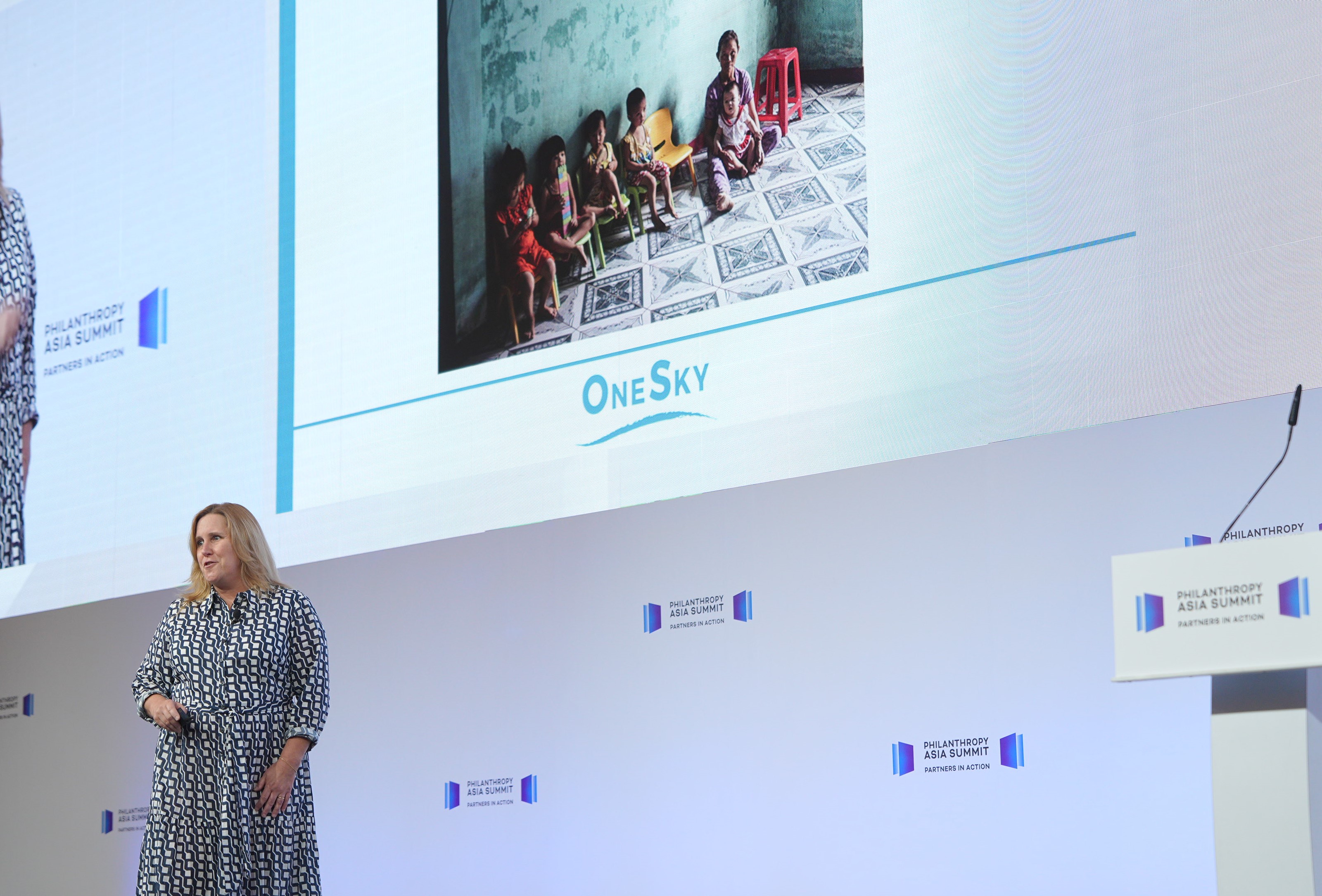
Ms. Morgan Lance, CEO, OneSky, said the organisation has already trained over 1,500 caregivers to improve care for some 40,000 children of factory workers in Vietnam. Now, OneSky has ambitions to scale the solution by working with the government in across Vietnam.
Project Pragati: Enabling 10th Grade for 10 Million in 10 Years – by Educate Girls
A staggering 82 million young women in India are not in education, employment, or training (NEET). Many are also at risk of never completing their secondary education.
Project Pragati helps girls from low-income households in India attain 10th grade education and skilling, enabling them to unlock a lifetime of higher earning potential.
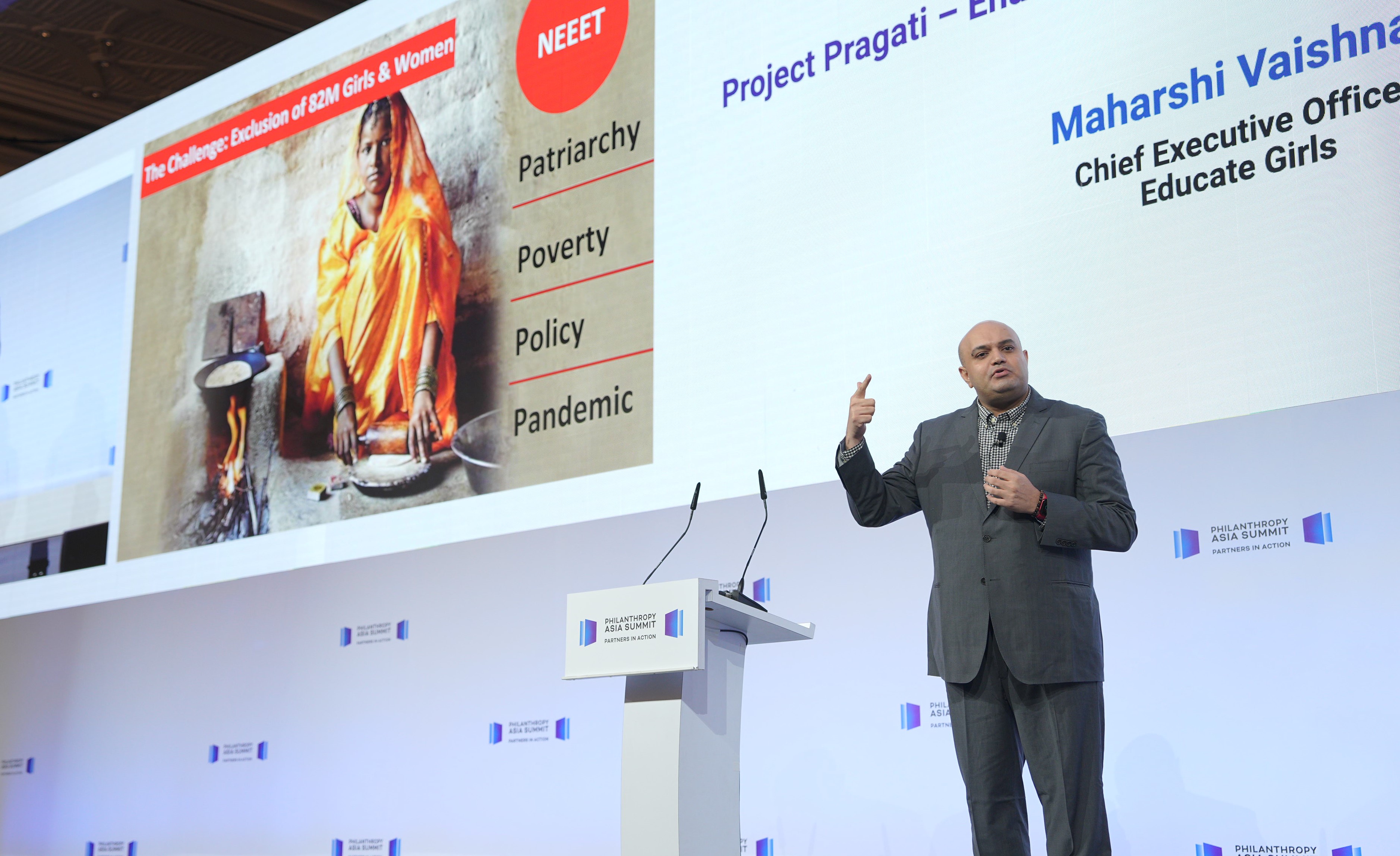
Mr. Maharshi Vaishnav, CEO, Educate Girls, emphasised that education is every girl’s right, and that girls’ education can drive progress towards nine out of the 17 Sustainable Development Goals (SDGs). Most importantly, an educated woman is twice more likely to get her children educated – thus breaking the intergenerational cycle of poverty and illiteracy.
Global & Public Health
Genomic Detection for Infectious Disease Elimination – by Duke-NUS Medical School
Infectious diseases claim millions of lives every year and remain the leading cause of death for young children globally. Yet, the majority of such diseases go undiagnosed.
Genomics is foundational in detecting them early, and scaling innovations in genomics can save lives. The Asia Pathogen Genomics Initiative (Asia PGI) was thus set up in 2021 – as a collaboration between Duke-NUS and the Bill & Melinda Gates Foundation – to accelerate the application of genomic sequencing in 14 low-resource countries.
Asia PGI now aims to detect priority infections within their first week of presenting to health systems. It will focus on building partnerships, strengthening in-country genomics capacity, and creating enabling national environments.
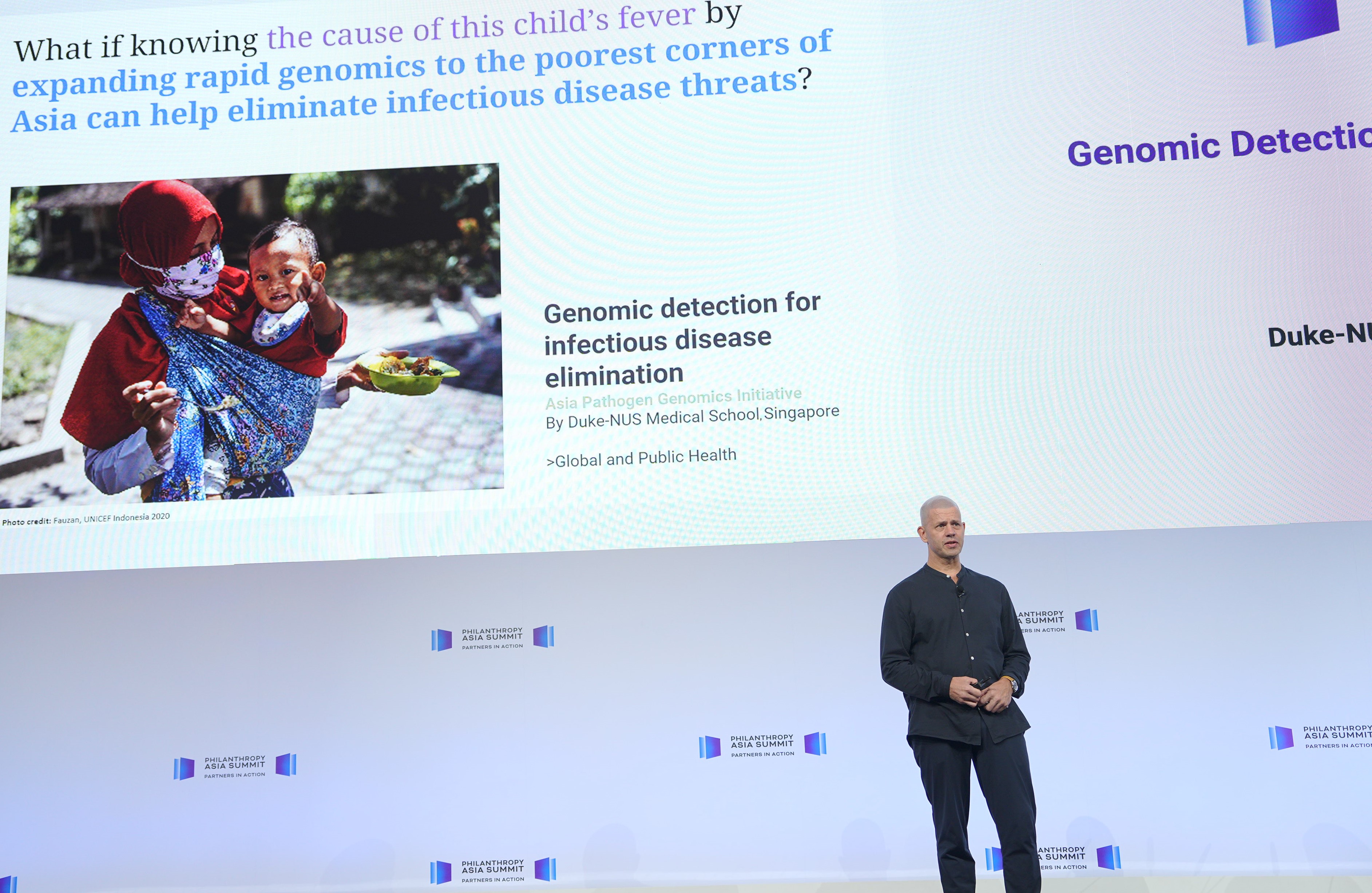
Prof. Paul Pronyk, Director, Duke-NUS Centre for Outbreak Preparedness, Duke-NUS Medical School, pointed out that these genomic technologies were just starting to develop and gain traction before they were deployed at scale during the Covid-19 pandemic. Today, there is an opportunity – and a responsibility – to apply these learnings to address common infections, he added.
Safe Water to Save Lives – by Evidence Action
Millions of people have no choice but to consume unsafe water daily. This has led to severe illnesses and preventable deaths, especially among young children.
Providing access to clean drinking water can save one in four children’s lives. Evidence Action is partnering with the Government of India to dramatically expand access to safe, high-quality drinking water by treating water at a low, marginal cost through rapidly scaling the chlorination of water. Its innovative approach capitalises on the government’s nationwide piped water-supply infrastructure investment and uses open-market technologies.
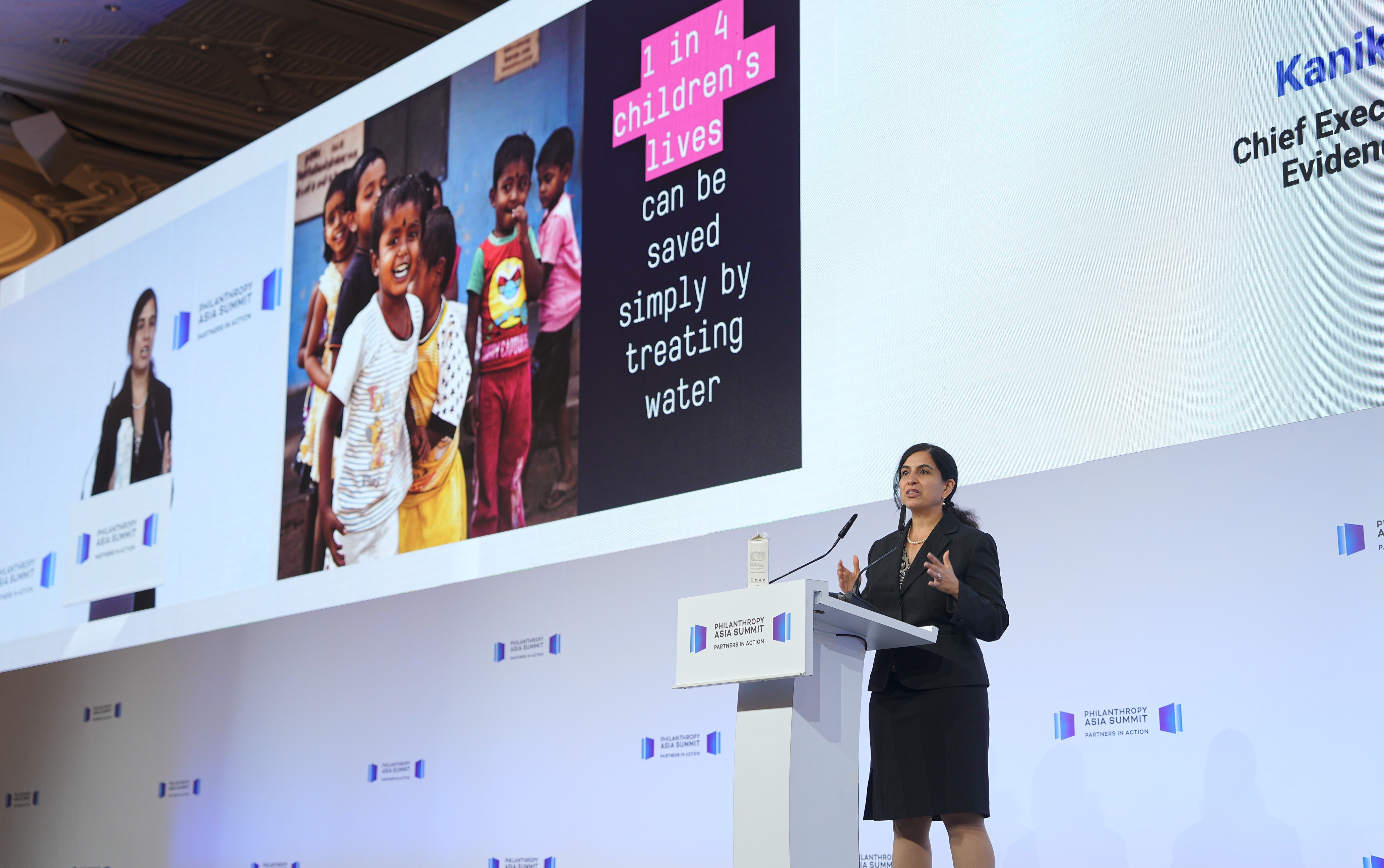
Ms. Kanika Bahl, CEO, Evidence Action, said that for every US$15 the government spends on installing taps, just one additional philanthropic dollar makes that water safe to drink. The chance to invest in a project of such a scale, at this level of cost-effectiveness, is a once-in-a-generation opportunity.
Enabling Healthcare Access in the Philippines – by CareSpan Asia and Temasek Foundation
60 million Filipinos experience healthcare poverty. Many of them live a considerable distance from the nearest clinic, lack health literacy, or cannot afford the cost of healthcare.
This pilot programme, led by CareSpan Asia and supported by Temasek Foundation, brings together multiple stakeholders in a public-private-philanthropic partnership. It aims to onboard 700,000 underserved Filipinos onto the government’s Universal Health Care programme. The aim is to demonstrate the financial sustainability of the solution, which can also serve as a helpful model for other cities.
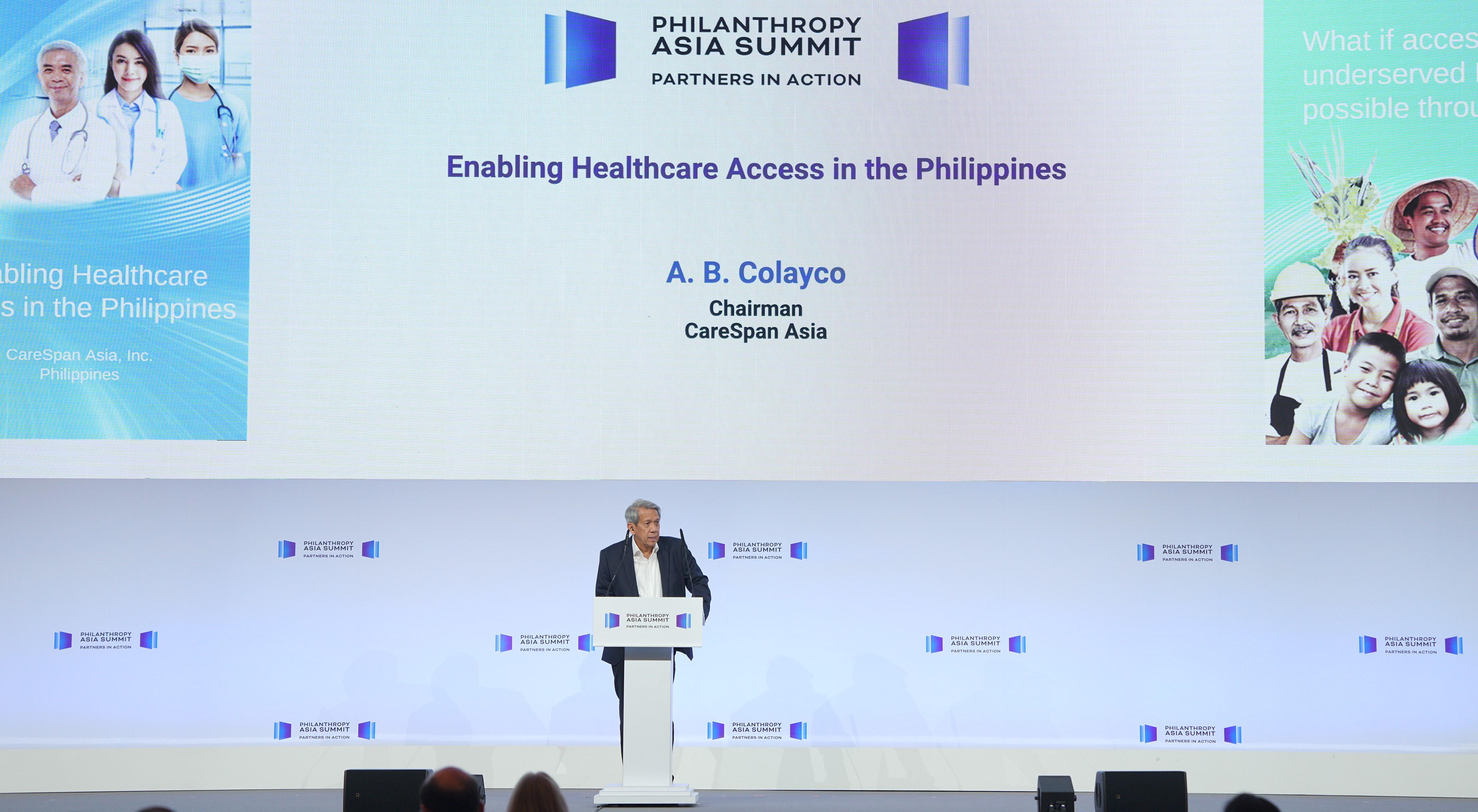
Mr. A.B. Colayco, Chairman, CareSpan Asia, noted that philanthropy can help to unlock the full potential of the solution. Ensuring that everyone has access to healthcare will help to prevent illnesses and improve people’s health – thereby transforming and saving lives, he added.
For more details about Philanthropy Asia Alliance’s portfolio of high-impact, Asia-focused projects, click here. If you are interested to support these projects or find out more about PAA, please email [email protected].
.jpg?sfvrsn=ceef05da_1)
.jpg?sfvrsn=9dce3c83_1)
